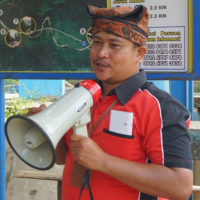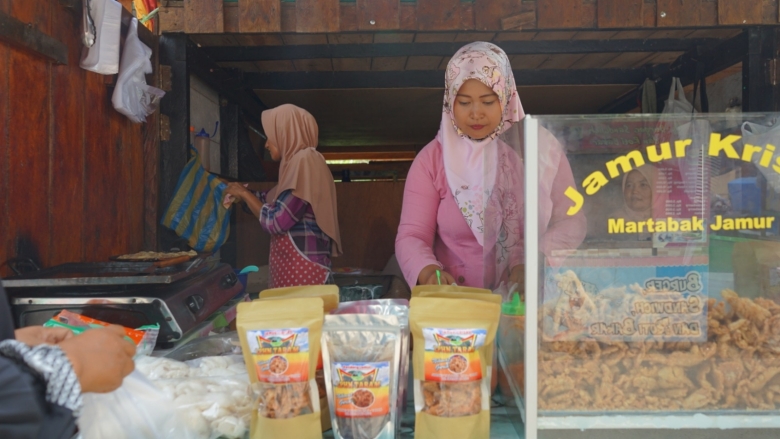Indonesia's tropical forests are a vital source of food, fuel, shelter, and employment for more than one-fifth of the country's population, and a crucial resource in the fight against climate change.
But many of the communities that rely on the world’s third-largest tropical rainforest for their livelihoods face economic challenges, including elevated poverty rates and limited opportunities to develop surrounding land.
The Indonesian government's Agrarian Reform Program seeks to reduce poverty and promote rural economic development by granting local and indigenous communities legal access to forest areas. The Social Forestry Program, launched in 2015, was a significant step toward these goals.
The Social Forestry Program aims to provide communities with legal access to 12.7 million hectares of state forests, allowing them to sustainably manage these resources for their livelihoods and forest conservation. By the end of 2023, nearly 10,000 Social Forestry permits had been issued nationally, covering 6.4 million hectares, including 251,000 hectares of customary forest (Hutan Adat), referring to forests situated within the lands of indigenous peoples.
This initiative has gradually empowered indigenous peoples and local communities to manage forests sustainably, contributing to both climate protection and improved livelihoods.
Visitors of ecotourism area in Taram Nagari, West Sumatra, Indonesia. Photo: Strengthening of Social Forestry (SSF) project
Crafting a Forest-Centered Ecotourism Experience
Muhammad Yahdi, known as Uda Yadi, together with his community in Taram Nagari, West Sumatra, initiated an innovative agroforestry and ecotourism project centered around the surrounding forests after the Nagari Forests Management Unit of Taram Nagari received a social forestry license in 2017. Under this license, indigenous peoples and local communities have been entrusted with the sustainable management of approximately 800 hectares of pristine forest land, which has been utilized for eco-tourism and agroforestry.
The ecotourism initiative in Taram Nagari has thrived with the support of indigenous communities. They developed essential infrastructure such as well-maintained walking paths and food stalls. Offering attractions like pine forests, waterfall bathing, and the tranquility of the forests, the ecotourism area has become a haven for nature enthusiasts. This sustainable approach not only generates income for locals but also preserves the forests.
Through strategic promotion and social media marketing, the ecotourism area generates daily income of around IDR50 million (around US$3,200) during peak season. The success of this venture has led to a significant increase in visitors, rising from 70,000 in 2018 to 260,000 in 2021.





